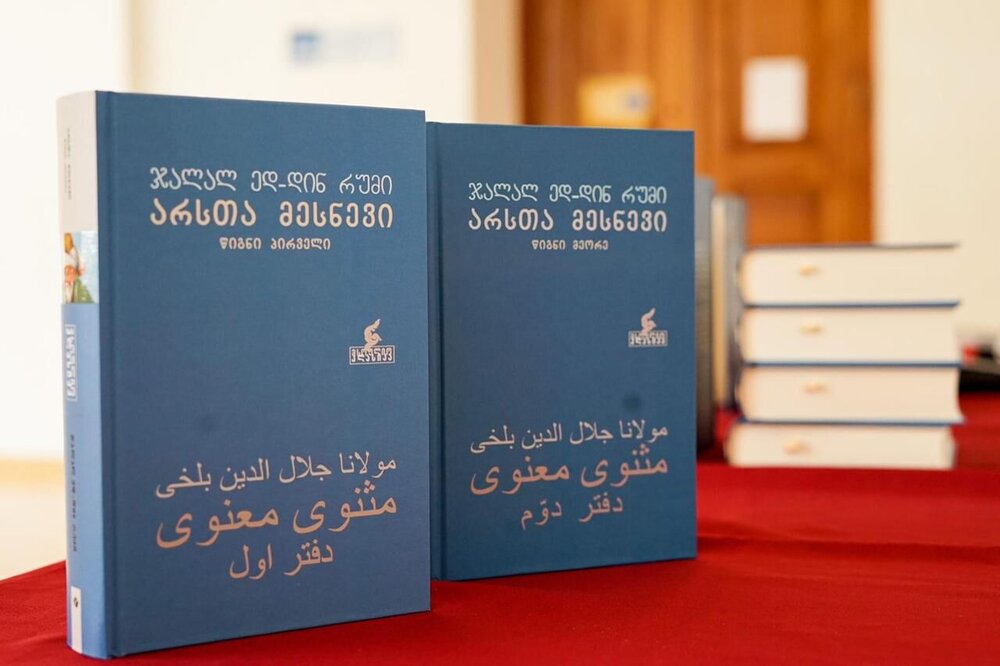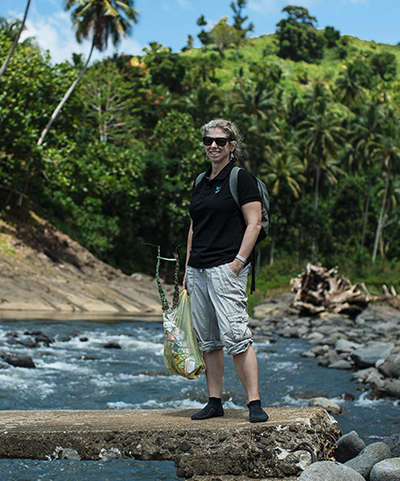
TEHRAN – A Georgian translation of Persian poet and mystic Molana Jalal ad-Din Rumi’s Masnavi-ye Manavi was introduced at Ivane Javakhishvili Tbilisi State University in the Georgian capital of Tbilisi last week.
Georgian poet Giorgi Lobzhanidze is the translator of the Persian masterpiece, which has been published in two volumes with contributions from the Iranian Culture Center in Tbilisi, the center announced on Thursday.
In his short speech made during the unveiling ceremony of the book, Lobzhanidze talked about the technical complexities of the translation of the book and the mysteries surrounding the numerous concepts the collection carries.
He also said that Rumi used the Holy Quran, hadiths from the Prophet Muhammad (S) and allegories to express his mystic thoughts and Islamic teachings, and praised Rumi’s knowledge of the three sources of his inspiration.
He also noted that Rumi’s thoughts have been expressed by many people from cultural communities across the world as his thoughts are universal.
He also recited verses from Masnavi-ye Manavi at the ceremony, which was attended by a group of Georgian cultural figures and literati, including the rector of Ivane Javakhishvili Tbilisi State University, George Sharvashidze.
He called the Georgian translation of the Masnavi-ye Manavi a great blessing and stressed the key role Rumi’s works played to improve the cultural relations between Iran and other countries, in particular, with Georgia.
He also expressed his thanks to Lobzhanidze for the translation of the book from the Persian classical literature, as well as to the Iranian Culture Center for its contributions to this cultural endeavor.
Lobzhanidze, an oriental studies and Arabian language graduate of Tbilisi State University, is the director of the Oriental Studies Department at the Center of Cultural Relations of Georgia.
In 1997, he came to Iran to work on his Ph.D. research project in religion and mysticism at the University of Tehran. After returning to Georgia in 1999, he again started working at Tbilisi State University.
In 2005, he wrote his doctoral thesis on the topic “Jesus and Virgin Marry in the Quran”. He is currently known as a distinguished translator of a new generation. He is a translator of the Quran, and the collection “Persian Fairy Tales” and the Gulistan by Persian poet Sadi, “The Water’s Footsteps” by Sohrab Sepehri and “Another Birth” by Forugh Farokhzad.
Lobzhanidze has also composed five poetry collections, “A Teacher of Arabic”, “Noontime Shadows”, “A Bouquet of Dandelions”, “Boiling Temperature” and “Orphan’s Kveri”.
Photo: A Georgian translation of Persian poet and mystic Molana Jalal ad-Din Rumi’s Masnavi-ye Manavi by Giorgi Lobzhanidze was introduced at Ivane Javakhishvili Tbilisi State University in Georgia.
MMS/YAW



